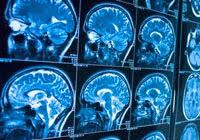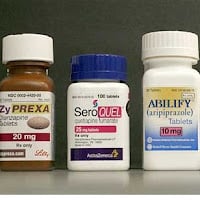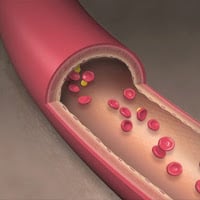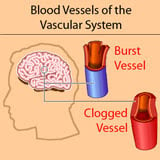
What is Vascular Dementia?
Vascular dementia is one of the 3 leading causes of dementia. When it appears together with Alzheimer’s, as it often does, it is called “Mixed dementia”. Learn what causes it and how to identify different types.

Vascular dementia is one of the 3 leading causes of dementia. When it appears together with Alzheimer’s, as it often does, it is called “Mixed dementia”. Learn what causes it and how to identify different types.

DRINKING beet juice can increase blood flow to the brain in older adults. The way beet juice does this holds great potential for combating dementia.

Outbursts of anger may trigger strokes and other cardiovascular problems that are foundations of vascular dementia. The differences are not subtle, as angry people may be tripling their chances of a stroke leading to vascular dementia. Get the relevant details.

Dementia symptoms such as agitation, psychosis, anxiety, insomnia & depression are often treated with antipsychotic medication. Learn why these medications increase the risk of stroke.

DIAGNOSIS: EMERGENCY ROOM DOCTORS commonly miss strokes, a leading cause of vascular dementia. This is especially true among women, minorities and younger patients. Learn how

VIDEO + ARTICLE: In a 2018 study, treating blood pressure more aggressively lowered odds of developing mild cognitive impairment, a gateway to dementia. CBS News

SPECIAL ANIMATION + TRANSCRIPT: Vascular dementia can be triggered by plaque build-up in brain arteries. This is called atherosclerosis, nicknamed “hardening of the arteries”. See

SLEEP VIDEO & ARTICLE: Deep sleep refreshes. Too little deep sleep and sleep apnea can trigger brain changes linked to vascular dementia. Learn what happens.

Sunlight improves vascular health. That’s good for your heart. Discover the good things it does for your brain.

MEMORY problems are too-quickly diagnosed as Alzheimer’s. A more common memory-culprit may be vascular dementia, caused by stroke, mini-stroke and high blood pressure. Learn the

BOOK OF THE WEEK: Thoughtful Dementia Care is today’s best book on understanding the dementia experience. An easy-to-read, sensitive portrayal of managing the world of dementia.

Don Hayen is a retired doctor, diagnosed with Alzheimer’s at 71. But that diagnosis took way too long. Find out how his “cognitive reserve” fooled his doctors. See why he sure wished it hadn’t.

There is more to us than our brains and our bodies, says dementia expert Teepa Snow. “There’s more to us than that … When we’re together, we become more.” Watch now.

Three important dementia studies focus on HS-AGING, a type of dementia almost as common as Alzheimer’s in the 85+ group. Yet few people have heard of it. Why? What makes it different?

An intriguing study of 120 grandmothers might surprise you. Doctors know socially engaged people have better cognition and less dementia. But can a person get too much of a good thing? What’s the right balance?

Enjoy this great duet between a musician with dementia and his son. A triumph of spirit over Alzheimer’s! Sing-a-long if you like!

It looks like a sneeze cannot give anyone Alzheimer’s. While Alzheimer’s abnormal disease proteins do spread from cell-to-cell, they are not “infectious”. Check out the facts.
No spam, only news and updates.


